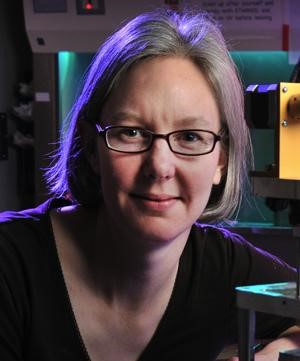Location: Home >> Virtual Special Issues
Cartilage Tissue Engineering
Cartilage is an avascular and aneural tissue that once damaged has little capacity to regenerate. Although a seemingly simply tissue, cartilage has proven a challenge to regenerate in situ and in vivo especially in articulating joints. Repair tissue is often fibrocartilage and while patient-reported outcomes are improved in the short-term, long-term prognosis remains questionable at best and becomes poor with age. A wealth of research has led to the development of different biomaterials and drug delivery strategies that have undoubtedly advanced the field. However despite these efforts, translation to clinical therapies that successfully return damaged cartilage to its healthy pre-injury state remains elusive. A fundamentally new approach to cartilage tissue engineering is needed.
This special issue will highlight recent advancements in cartilage tissue engineering that lie at the intersection of cell biology, cell signalling and materials and which examine the complexities of the in vivo environment. Areas of interest include, but are not limited to, chondrogenesis of stem cells and chondrocyte signalling in the context of cartilage regeneration in vitro and in vivo, advanced materials and designs and bioreactors to simulate the in vivo environment, understanding the role of environmental (e.g., biochemical and biophysical) cues that arise from the complex environment, and translational studies into large animal models. The goal of this special issue is to bring together a collection of work that highlights key areas that will be critical to achieving success in the regeneration of healthy and functional cartilage.
|
|
Guest EditorProfessor Stephanie J. BryantAssociate Director of Materials Science & Engineering Program Department of Chemical and Biological Engineering, University of Colorado at Boulder, Boulder, CO 80303, USA |
Submission Deadline: 29 February 2020
Online Submission
Manuscripts should be submitted online through Hapres Online Submission System. Please visit Guide for Authors before submitting a manuscript. Authors are encouraged to submit a paper as soon as it is ready and don’t need to wait until the deadline. Submissions will be sent to peer-review in order of arrival. Accepted papers will be published continuously in Regenerative Medicine Frontiers (RMF) and then gathered together on the special issue webpage. We welcome Research articles, Review papers and Short Communications. For planned papers, a title and short abstract (about 100 words) can be sent to the Editorial Office for announcement on this website.
See Papers Published in This Special Issue
Note
Virtual Special Issue (VSI) is a collection of papers centered around a specific topic, led by an expert (Guest Editor) in the field. Virtual Special Issues are an important component of our journal and cover current hot topics within the scope of the journal.
All papers belonging to a Virtual Special Issue will be gathered together on a single webpage. They are published in the regular issues of the journal as soon as publishable, and labeled as belonging to the Virtual Special Issue. A link from each paper will take you to the Virtual Special Issue website.
Submissions to Virtual Special Issues will undergo the same rigorous peer-review process as regular papers submitted to the journal.

Copyright © 2025 Hapres Ltd.
